Below are links to opportunities to participate in fun paleontological related activities, including field work (typcially must be over 18) and summer camps (posssible for kids and families). Last updated 21 June 2024.
Museum Field Seasons
Commercial Paleontology
Summer Camps
Other Events
Also see the posters below.
Over the years at our annual fossil show the Paleontological Society of Austin has produced educational posters on various topics. They are available below, licensed under Creative Commons Attribution-Non-Commercial 4.0 International license or Creative Commons Attribution-ShareAlike 4.0 International License. (See the posters' footers for details.)
You are free to use them provided you give proper attribution. Used as is, the footer provides attribution. If you are a commercial enterprise note the difference between Non-Commercial and ShareAlike licenses. They can be downloaded, printed (2' x 3'), laminated and mounted on foam core boards. Contact a local office supply store that offers printing services.
| Geological Formations | Prehistoric Sharks | ||
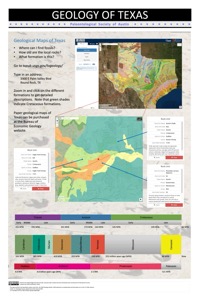 Geological Mapping Tools to identify formations in Texas. |
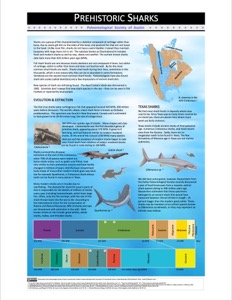 Overview |
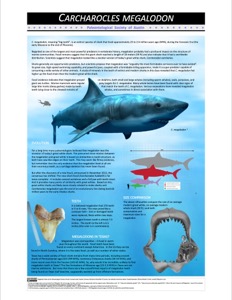 Megalodon |
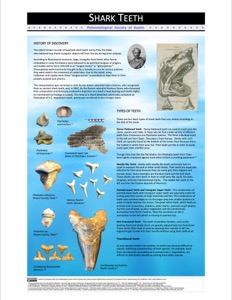 Shark Teeth |
| Prehistoric Monster Reptiles | |||
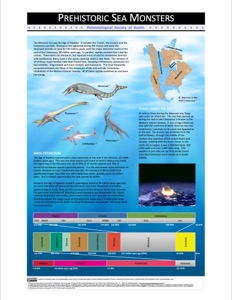 Overview |
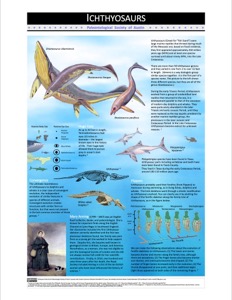 Ichthyosaurs |
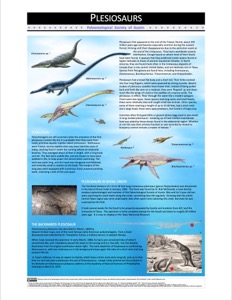 Plesiosaurs |
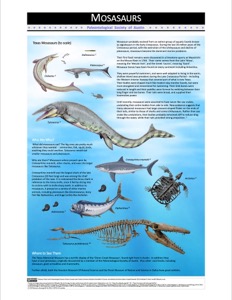 Mosasaurs |
| Dinosaurs | |||
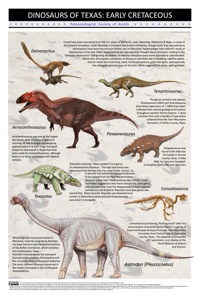 Dinosaurs Found in Texas - Lower Cretaceous |
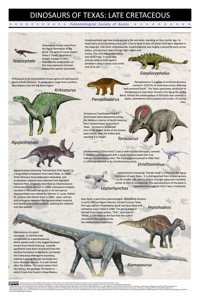 Dinosaurs Found in Texas - Upper Cretaceous |
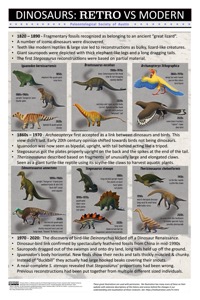 How our images of dinosaurs have changed over time. |
|
| Prehistoric Texas Underwater | |||
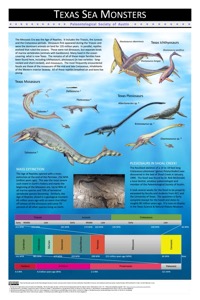 Marine Reptile Summary |
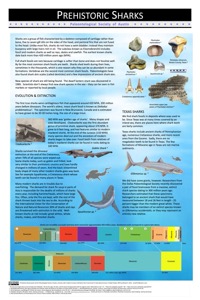 Shark Summary |
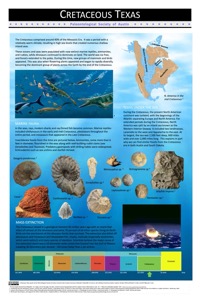 Texas Cretaceous |
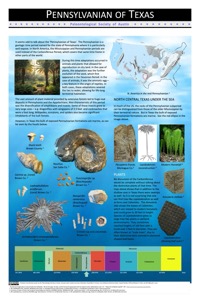 Texas Pennsylvanian |
| Pleistocene Texas | |||
 Ice Age Texas |
 Pleistocene Texas |
||
I have checked that these links exist (last checked October 2022). At least at one time they were all fossil related. While the link existence check is automated, the content check is not. Even pages that persist may have their content deleted, get co-opted, etc.
If you find a problem link, let us know. [ Report Link Problem ]
Times have changed since I first compiled this list in 2001. Google wasn't a verb. If you want particular information, e.g. "trilobites", I would Google first. The first three sites it returns are the Wikipedia entry (another good place to start), the Britanica online entry, and the "Guide to the Orders of Trilobites" listed below!
Note:
These pages have not been generally reviewed, but some particularly informative sites are marked by a  .
.
The sites selling material are provided solely as a resource and should in no way be assumed to have been
vouched for by PSoA or its members.
Two great resources for helping you id your specimens.





 . One of the very best resources for Texas echinoids, a major effort by a member of the Paleontological Society of Austin.
. One of the very best resources for Texas echinoids, a major effort by a member of the Paleontological Society of Austin. Terrific resource from the British Natural History Museum.
Terrific resource from the British Natural History Museum. . By the same the same guy who brought you Guide to the Orders of Trilobites.
. By the same the same guy who brought you Guide to the Orders of Trilobites.